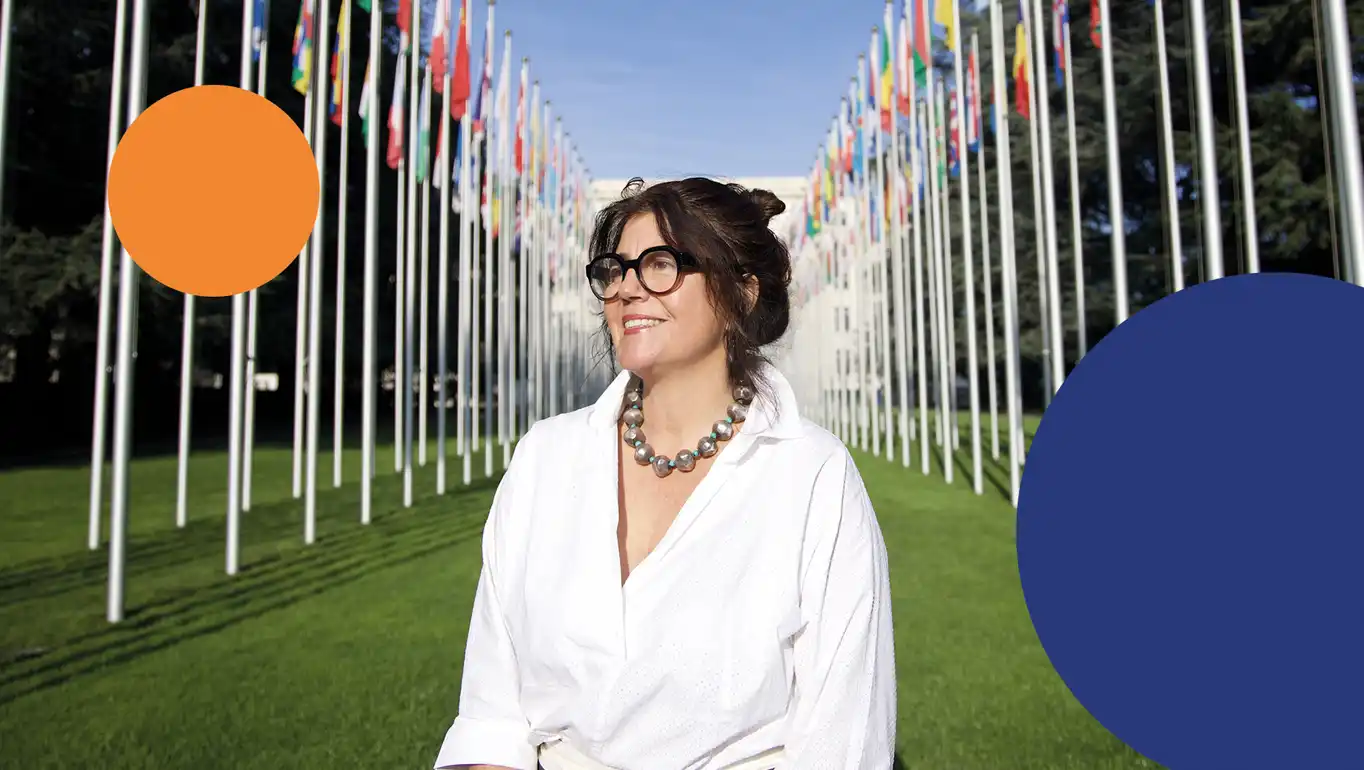In this conversation, UNRISD Director, Magdalena Sepúlveda Carmona, explains why the capacity to produce independent, rigorous, inclusive, and innovative research is vital for a future-ready United Nations – and how asking the right questions can have the power to change the world.
In the context of the UN80 reform initiative, why is research important for the UN, and how does it help respond to today’s complex global challenges?
The UN80 initiative represents a crucial opportunity for the United Nations to adopt a more strategic approach. In today’s landscape characterized by misinformation, declining trust, and intricate global challenges, independent research becomes imperative. It ensures that decisions are grounded in evidence, fosters objectivity, embraces diverse perspectives, and cultivates trust among the UN, governments, civil society, and the public. Independent research institutes within the UN, such as UNRISD, play an essential role by providing credible, forward-looking, and inclusive analyses that empower the UN to anticipate, understand, and effectively address emerging issues in a fair and sustainable manner. In a world where facts can easily be manipulated, our research cuts through the noise, offering evidence-based insights that inform policy, enhance accountability, and reinforce the UN’s core values of equity, justice, and human rights.
How would you describe UNRISD and the role it plays in shaping global development policies?
UNRISD is a pioneering research institution that has been at the forefront of analyzing the root causes of inequality, justice, and power for 62 years. Our research addresses often-overlooked development issues and directly informs policy dialogues and multilateral negotiations by translating complex findings into actionable recommendations. We contribute to the formulation of development strategies, guide the design of policies and programs, and provide evidence for innovative policy directions. Often, our work fills critical gaps that other UN entities may not address with the same depth or research independence. UNRISD plays a vital role in ensuring diverse perspectives are included in high-level processes, assisting decision-makers in envisioning fairer and more inclusive development pathways.
UNRISD has a reputation for challenging assumptions and amplifying underrepresented voices. How do you bring those perspectives into your work?
Inclusion is a fundamental aspect of our research process from the outset. We collaborate with scholars and practitioners from the Global South, ensure gender balance, and integrate voices that are often missing in policy debates. In 2024, we engaged with 400 collaborating researchers, 45% of whom are from the Global South, and 56% are women, showcasing our commitment to inclusivity and independence. This approach enhances our research because effective policy proposals must reflect the realities of those most impacted.
Can you share an example where UNRISD’s research changed the conversation or policy direction?
There are many examples, but one that stands out to me is UNRISD’s work on care. Over the past 30 years, UNRISD has significantly transformed the global understanding of care by introducing the influential Care Diamond framework. Their pioneering research has highlighted the gendered dimensions and economic value of unpaid care. This work has shaped national policies in countries such as Mexico and Chile, informed global initiatives like the Global Alliance for Care, and influenced organizations such as UN Women and the International Labour Organization (ILO). As a result, care has been recognized as a public good and a crucial foundation for equitable development.
What do you think are UNRISD’s most critical assets?
UNRISD’s greatest strengths lie in its people, autonomy, and capacity to harmonize diverse perspectives in the pursuit of a more equitable and just world. Its dynamic and diverse community includes researchers, practitioners, grassroots movements, and UN partners dedicated to advancing social justice and sustainable development. By maintaining a small, agile core team, we effectively leverage our global network to co-produce interdisciplinary research with experts from the Global South, ensuring that underrepresented voices actively shape UN discussions. Our independence empowers us to pose bold questions and explore complex issues. Together, these assets allow us to bridge the gap between research and practice, translating findings into impactful and transformative actions.
How do you envision UNRISD contributing to the greater UN system and multilateralism?
As part of the United Nations family, we have unique opportunities to shape development thinking, policy, and practice. We provide advice to the UN Secretariat, share knowledge with specialized agencies, and engage with national policy-makers through UN intergovernmental bodies. These entry points allow us to bring diverse voices into UN debates, ensuring meaningful participation. At the same time, our independence and autonomy enable us to advance progressive agendas without fear of political backlash, making us essential to supporting and carrying out the critical, nonpartisan work of the UN.



